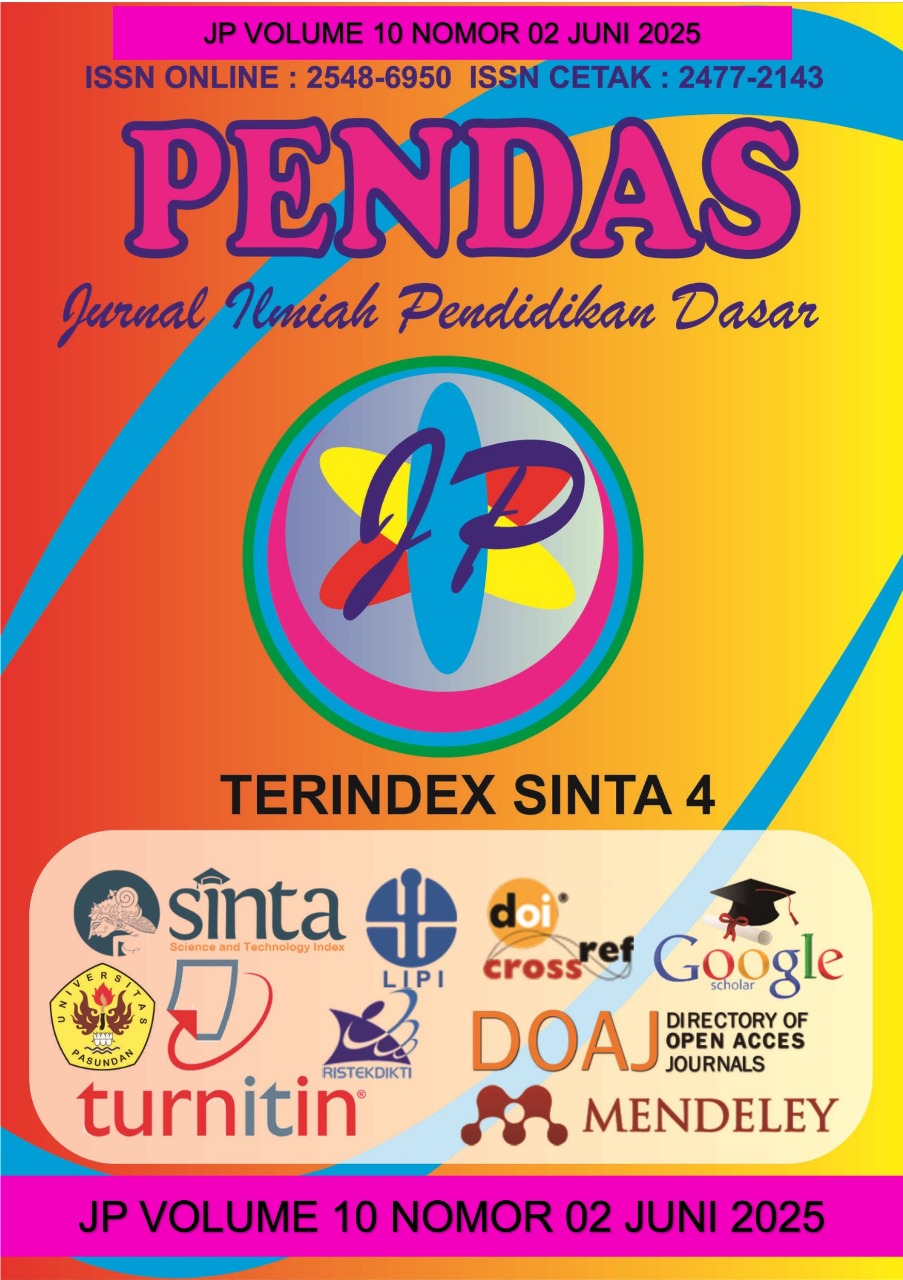MANAJEMEN MUTU TENAGA PENDIDIK ISLAM DALAM MENINGKATKAN KEPUASAN STAKEHOLDER: KAJIAN SYSTEMATIC LITERATURE
DOI:
https://doi.org/10.23969/jp.v10i02.26495Keywords:
Planning, Implementation, Assessment, Evaluation/Follow-upAbstract
early childhood science process skills. In the midst of science learning methods that are still dominated by theory, hydroponic experimentation offers an innovative approach that provides direct, hands-on learning experiences for children. Through this method, children are encouraged to actively explore scientific concepts, increase their curiosity, and develop an understanding of plant growth processes.The aim of this study is to determine the effect of hydroponic experimentation on the science process skills of children at Kemala Bhayangkari 03 Alai Kindergarten. The research employs a quantitative approach using a Quasi-Experimental design. The population consists of 30 children, with purposive sampling used to select two groups: the experimental class (12 children) participating in hydroponic activities, and the control class (12 children) engaging in conventional learning through color mixing experiments.Data analysis was conducted using prerequisite tests and the independent sample t-test with the assistance of SPSS 23.0 for Windows. The results showed that the average pre-test score in the experimental class increased from 12.08 to 21.83 in the post-test. In the control class, scores increased from 10.33 to 18.17. Although the significance value (0.064) indicates no statistically significant difference between the two groups (p > 0.05), the greater improvement in the experimental class suggests that hydroponic experimentation has a positive impact on children's science process skills.
Downloads
References
Comission, European, ‘済無No Title No Title No Title’, 4.1 (2016), pp. 1–23
Hassan, Azizul, and Nor Aida Abdul Rahman, Digital Transformation in Aviation, Tourism and Hospitality in Southeast Asia, Digital Transformation in Aviation, Tourism and Hospitality in Southeast Asia, 2022, doi:10.4324/9781003315179
Kholifah, Nur, Muqarramah Sulaiman Kurdi, Muhammad Nurtanto, Farid Mutohhari, Moh Fawaid, and Tamil Selvan Subramaniam, ‘The Role of Teacher Self-Efficacy on the Instructional Quality in 21st Century: A Study on Vocational Teachers, Indonesia’, International Journal of Evaluation and Research in Education, 12.2 (2023), pp. 998–1006, doi:10.11591/ijere.v12i2.23949
Setiawan, Reina, Agus Putranto, Wihendro, Elfindah Princes, Ira Geraldina, Eka Julianti, and others, ‘Tech-Driven Transformation: Innovative Pricing Strategies for E-Learning’, IEEE Access, 12.April (2024), pp. 59063–78, doi:10.1109/ACCESS.2024.3392489
Warsono, Warsono, Sriyanto Sriyanto, Nasrudin Harahap, and Nurul Hidayati Murtafiah, ‘Implementation of Quality Management in Islamic Religious Education Learning’, Al Wildan: Jurnal Manajemen Pendidikan Islam, 1.1 (2022), pp. 23–32, doi:10.57146/alwildan.v1i1.548
Westley, Katherine E., ‘Teacher Quality and Student Achievement’, Teacher Quality and Student Achievement, 8.1 (2011), pp. 1–215, doi:10.14507/epaa.v8n1.2000
Wicaksana, Arif, and Tahar Rachman, Manajemen Sumber Daya Manusia, Angewandte Chemie International Edition, 6(11), 951–952., 2018, III <https://medium.com/@arifwicaksanaa/pengertian-use-case-a7e576e1b6bf>
홍종욱, ‘3월 1일의 밤은 대한민국의 봄이었다 — 권보드래, ?3월 1일의 밤: 폭력의 세기에 꾸는 평화의 꿈? (돌베개, 2019) —’, Concept and Communication, null.23 (2019), pp. 301–16, doi:10.15797/concom.2019..23.009
Downloads
Published
Issue
Section
License
Copyright (c) 2025 Pendas : Jurnal Ilmiah Pendidikan Dasar

This work is licensed under a Creative Commons Attribution 4.0 International License.














































